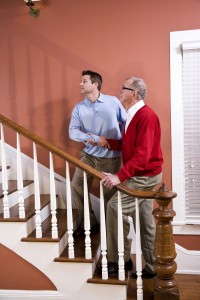 Caring for a loved one is a labor of love, very often with an emphasis on the work. Caregivers bear an incredible weight in making sure that their loved one is getting what they need while their own life is put on hold. Burnout is common.
Caring for a loved one is a labor of love, very often with an emphasis on the work. Caregivers bear an incredible weight in making sure that their loved one is getting what they need while their own life is put on hold. Burnout is common.
With good intentions and a little forethought though, a small amount of kindness to a caregiver can go a long way. The key to being an effective helper is to act with the caregiver in mind, to give them what they want, not what you think they need.
Get Personal
If you know the caregiver and have an idea of their situation and what they enjoy, you can focus on something from which you know they would benefit. For example, if they have always taken pride in their yard but have not been able to find time to take care of it as well as they usually do, ask if you can weed the garden or cut the grass (or hire someone who can). If they have a hobby, help them be able to do that activity by caring for their loved one or by performing other tasks. If you do not know the person well, you can ask someone who does what they would enjoy or offer something that is generally enjoyable or helpful.
Be prepared for them to decline your offer caregivers may not want to burden anyone or feel awkward about accepting help. You may need to offer again later and remind them that you want to help.
You may need to be creative in how you facilitate giving them a hand. If they are anxious or unable, to leave the person they care for, then try to figure out how to accommodate that. Otherwise, your offer to help may cause more stress than good.
Show Up
Forget about asking the caregiver to let you know when/if they need anything. Chances are good that they will either never ask or have no clue how to respond to an open-ended request. Instead, make a specific offer and follow through.
A small break from the endless responsibility of being a caregiver can be very refreshing. Take something off the caregiver’s plate. Pick up some groceries or an indulgent treat and drop it off to them. Sit and listen to them talk. Help with chores. Watch a movie together. There is no need to spend money or obsess over what to do. Simple, thoughtful gestures are often enough and very much appreciated.
Learn more about our elder law estate planning or Medicaid Planning services. Contact us with additional questions.
Was this article of interest to you? If so, please LIKE our Facebook Page by clicking here or sign up for our newsletter.




 As adults, we tend to take for granted an abundance of competency related normalcies that will one day begin to deteriorate, but there are many revelations that come with aging. One may wonder how our family members will find the proper person to take care of us when we are unable do so ourselves. How do our family members find the right person to take care of us when we are unable to do it for ourselves? The following is a list of considerations that need to be taken.
As adults, we tend to take for granted an abundance of competency related normalcies that will one day begin to deteriorate, but there are many revelations that come with aging. One may wonder how our family members will find the proper person to take care of us when we are unable do so ourselves. How do our family members find the right person to take care of us when we are unable to do it for ourselves? The following is a list of considerations that need to be taken.